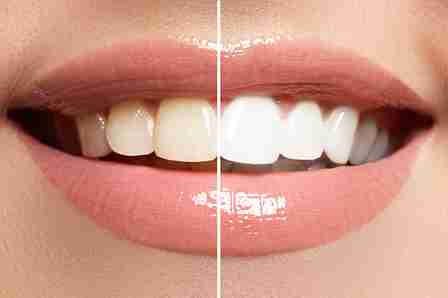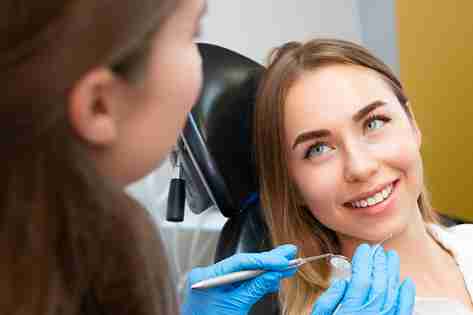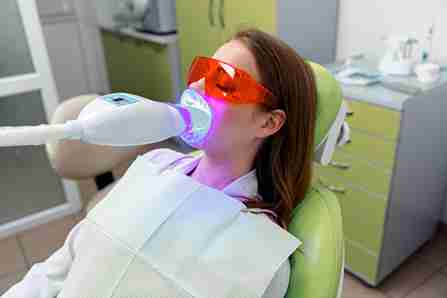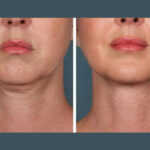A bright, confident smile is something many people aspire to achieve, and modern dentistry has made it easier with safe and effective whitening treatments. For patients interested in Teeth Whitening Liverpool, the process isn’t just cosmetic—it is grounded in science, from how bleaching agents interact with enamel to how light-assisted procedures enhance results. Understanding this process allows patients to make informed decisions, whether opting for in-clinic whitening, professional at-home kits, or exploring whitening as part of a wider cosmetic treatment plan that may also include Dental Implant Liverpool.This detailed guide breaks down the scientific aspects of teeth whitening, what happens on a chemical level, and why professional treatments often achieve longer-lasting results compared to over-the-counter options.
The Science Behind Tooth Colour
The colour of natural teeth is influenced by a combination of factors, including the thickness of enamel, the underlying dentine shade, and the presence of surface stains from lifestyle habits. Enamel is naturally translucent, meaning the yellowish dentine beneath affects the overall tooth shade. Over time, chromogens pigmented molecules from coffee, tea, red wine, or tobacco accumulate on teeth, leading to discolouration.
There are two main categories of staining:
- Extrinsic stains caused by surface-level pigments that attach to the enamel.
- Intrinsic stains located within the dentine, often resulting from genetics, certain medications, or ageing.
Professional whitening treatments used in teeth whitening Liverpool target both stain types with agents such as hydrogen peroxide or carbamide peroxide, which penetrate and chemically alter the discoloured molecules.
How Whitening Agents Actually Work
Whitening products rely on peroxide compounds, which are strong oxidising agents. When applied to the tooth surface, these agents break down into oxygen molecules that penetrate enamel and dentine. The oxygen molecules interact with stain-causing chromogens, breaking them into smaller, less pigmented compounds. This chemical reaction doesn’t strip away the enamel but instead alters the light-reflecting properties of teeth, making them appear whiter.Professional whitening systems are carefully concentrated to provide effective results without damaging tooth structure. In contrast, many shop-bought kits contain lower peroxide levels, making them less effective on deep stains.
In-Clinic vs At-Home Whitening: A Scientific Comparison
Both professional in-clinic methods and dentist-prescribed at-home kits are effective for teeth whitening, but their mechanisms and intensity differ. In-clinic whitening in Teeth Whitening Liverpool often uses a higher concentration of peroxide gels combined with LED or laser light technology. The light doesn’t whiten teeth directly but accelerates the breakdown of peroxide into oxygen radicals, reducing treatment time and enhancing results.At-home kits prescribed by a dentist use custom-fitted trays with a lower peroxide concentration. Although results develop over a few weeks, these kits still use the same scientific principle of stain breakdown. Over-the-counter products, however, often lack custom fit and efficacy, making them less predictable.
Factors That Influence Whitening Effectiveness
Not every patient responds to whitening in the same way, and several factors affect the outcome:
- Tooth shade before treatment
- Type of stains (extrinsic or intrinsic)
- Age and enamel thickness
- Presence of dental restorations such as crowns or veneers
This is why patients considering whitening as part of their smile makeover often coordinate it with other treatments, such as Dental Implant Liverpool, to ensure colour consistency across natural teeth and restorations.
Benefits of Professional Whitening
For patients weighing their options, professional treatments offer a range of benefits that extend beyond cosmetic results:
- Greater whitening power: Dentist-supervised procedures use stronger peroxide levels safely.
- Faster transformation: Light-assisted whitening can brighten teeth by several shades in under an hour.
- Longer-lasting results: Professional systems include enamel protection and customised aftercare advice.
These advantages make professional whitening a reliable choice for patients seeking noticeable and consistent improvements.

Common Misconceptions About Whitening
- Whitening damages enamel: In reality, peroxide alters colour molecules and does not erode enamel when supervised properly.
- Whitening makes teeth weak: Professional methods are designed to protect tooth integrity.
- Over-the-counter kits work just as well: Lower peroxide levels typically mean slower and less dramatic results.
Safety and Sensitivity Management
- Tooth sensitivity is usually temporary and results from peroxide interacting with dentine tubules.
- Dentists use desensitising gels or recommend fluoride treatments to minimise discomfort.
- Sensitivity management allows patients to complete treatment without long-term effects on tooth health.
Scientific Myths Clarified
Patients often believe light technology alone whitens teeth, but it only acts as a catalyst, activating the peroxide more efficiently. Similarly, ‘natural remedies’ such as lemon juice or bicarbonate of soda may show mild effects but risk enamel erosion and gum irritation if used excessively. Scientifically tested methods remain the safest and most effective whitening solutions across options available in Teeth Whitening Liverpool practices.
Comparing Whitening Approaches
| Whitening Method | Peroxide Concentration | Duration of Results | Strength of Whitening | Best For |
| In-clinic professional | High (30–40%) | Up to 2 years | Strong and quick | Deep stains, quick results |
| Dentist-prescribed home kit | Medium (10–20%) | 1–2 years | Moderate but steady | Gradual whitening, sensitive patients |
| Over-the-counter products | Low (<10%) | Weeks to months | Mild at best | Surface stains, short-term results |
How to Maintain Results After Whitening
- Limit staining foods and drinks, or rinse with water immediately after consumption.
- Maintain daily brushing and flossing habits with fluoride-based toothpaste.
- Attend regular check-ups with your dentist for touch-up sessions if needed.
Whitening Combined with Other Treatments
Whitening isn’t always a standalone treatment. For patients planning dental implant Liverpool, whitening may be done before the implant crown is fitted, so that the restoration matches the newly brightened shade. This is also relevant when patients undergo cosmetic procedures such as veneers or orthodontic treatment, ensuring an even aesthetic result across all teeth.
Risks and Suitability
Teeth whitening is not suitable for everyone. Patients with severe enamel erosion, gum disease, or large restorations may require alternative cosmetic approaches. For example, intrinsic stains caused by antibiotics such as tetracycline may not fully respond to peroxide whitening and might need veneers as a solution instead. This assessment underlines why whitening should only be carried out under dental supervision.

The Role of Aftercare in Long-Term Success
Even the most effective whitening procedures require good maintenance. Patients who take care of diet, oral hygiene, and regular dental visits achieve the longest-lasting results. Dentists often recommend top-up whitening sessions after 12–18 months to refresh the brightness. By following scientific and professional guidelines, patients can enjoy sustained results with minimal side effects.
Conclusion
Teeth whitening is a carefully structured process rooted in science, targeting both surface and internal stains through the controlled use of peroxide agents. Whether performed in the clinic or supported by professional at-home kits, it makes use of chemical reactions that safely break down stain molecules without harming enamel. Considering treatments like Teeth Whitening Liverpool and Dental Implant Liverpool together allows patients to achieve comprehensive smile restoration with both function and aesthetics in mind. For patients seeking safe, effective, and professional whitening, Smilo Dental Implants Liverpool provides expert care tailored to each individual’s needs.


